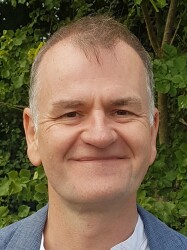BibTex format
@unpublished{Williams:2022:10.1101/2022.04.26.22274257,
author = {Williams, PJ and Philip, KEJ and Gill, NK and Flannery, D and Buttery, S and Bartlett, EC and Devaraj, A and Kemp, SV and Addis, J and Derbyshire, J and Chen, M and Morris, K and Laverty, AA and Hopkinson, NS},
doi = {10.1101/2022.04.26.22274257},
title = {Immediate, remote smoking cessation intervention in participants undergoing a targeted lung health check: QuLIT2 a randomised controlled trial},
url = {http://dx.doi.org/10.1101/2022.04.26.22274257},
year = {2022}
}

